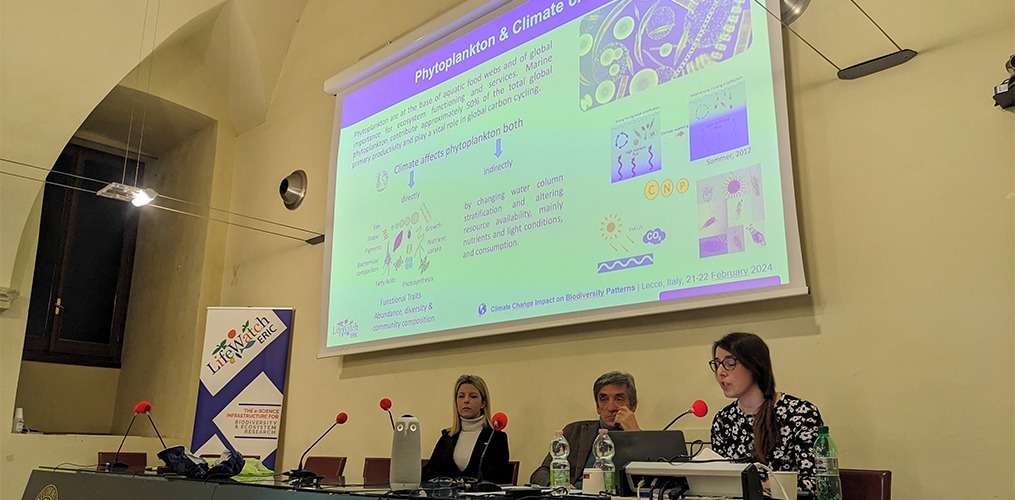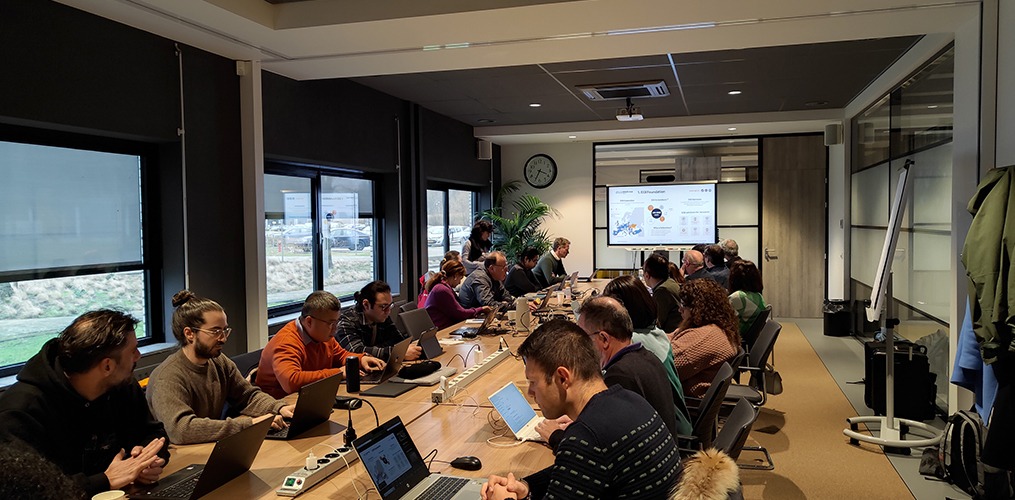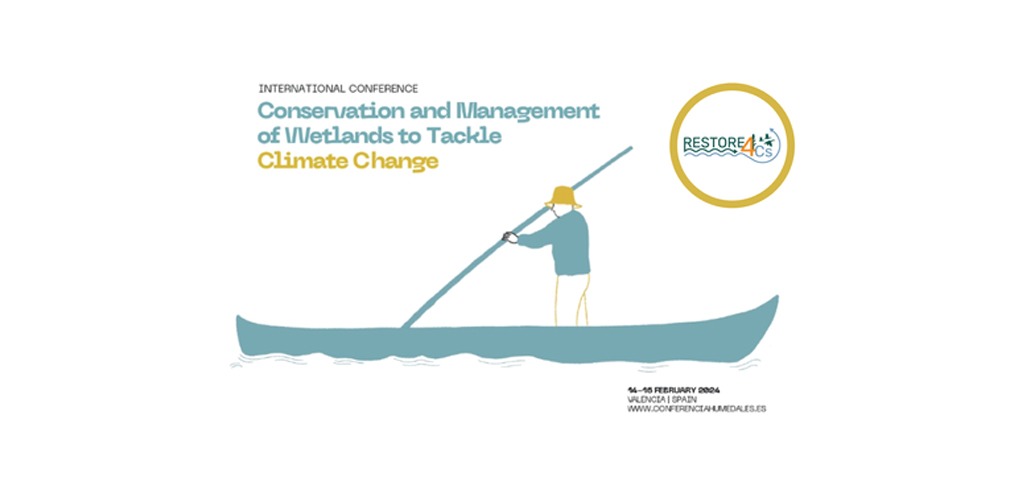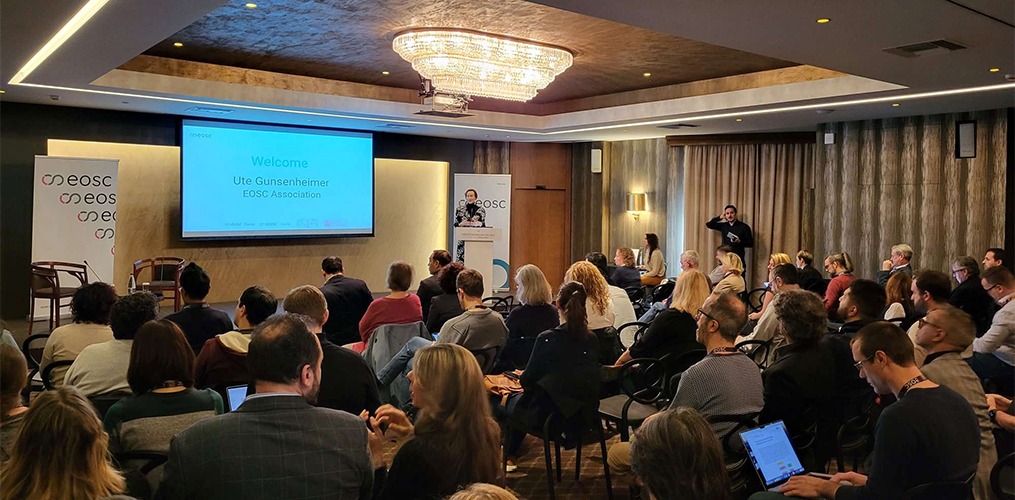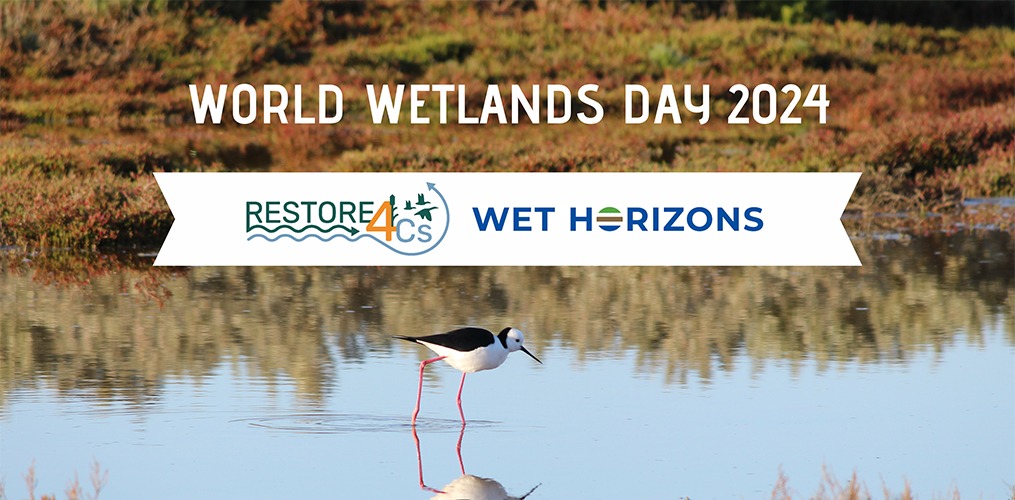The second Thematic Workshop, out of a series of six, was organised by LifeWatch Italy. Following the success of the first workshop on Taxonomy hosted by LifeWatch Belgium, this event took place on February 21st and 22nd at the Rectorate Hall of the University of Salento in Lecce, Italy. Over a hundred participants attended the workshop, both online and in person. The workshop’s main objective was to understand and address the ecological impacts of climate change.
LifeWatch ERIC has planned a series of workshops for 2024 that will focus on its Thematic Services, ICT tools to support biodiversity and ecosystems research. Besides exchanging knowledge, these workshops aim to define working groups composed of experts in each thematic service. These experts will work towards continuous improvement by incorporating feedback from researchers and workshop participants. The workshops will occur from January to May 2024 in Belgium, Italy, Slovenia, and Portugal.
The workshop, opened by Alberto Basset – LifeWatch ERIC Service Centre Director and Full Professor of Ecology at the University of Salento – and Antonello Provenzale – LifeWatch Italy Coordinator and Director of the Institute of Geosciences and Georesources of the National Research Council – discussed the threats posed by climate change, agriculture, urbanisation and industrial production to ecosystems. Climate change affects ecosystems and biodiversity, causing increasing salinity levels and sea level rise, population shifts, altering species interactions, and reducing productivity and biomass. The workshop explored how ecosystems respond to the ecological impacts of climate change.
Speakers at the workshop included Doug S. Glazier, who discussed the link between increase in temperatures and individual metabolic responses; Piero Lionello, who showcased AI’s role in estimating coastal lagoons’ responses; and Milad Shokri, who delved into the energetic and behavioural responses of aquatic ectotherms to projected climate change. Gianpaolo Coro examined climate change’s impact on animal presence, while Francesco De Leo demonstrated collaborative coding platforms’ potential for biodiversity and ecosystem research. The symposium covered a spectrum of topics, including the presentation from Mara Baudena on the ecological resilience of Mediterranean forests and the cellular automata models for wildfire-vegetation interaction by Paolo Fiorucci. Marta Magnani focused on identifying environmental drivers of carbon fluxes, and Carmela Marangi delved into modelling soil organic carbon dynamics in wetlands. Jessica Titocci concluded the event by highlighting the monitoring of aquatic primary producers’ response to climate change. To have a look at the presentations, you can visit this link.
Working groups led by the community will be established to address the challenges and enhance collaboration between Common Facilities and Distributed Centers, to review and update the research needs mapping for Thematic Services within national scientific communities and identify construction priorities. This collective effort aims to pave the way for more robust solutions to tackle ongoing climate threats to ecosystems and biodiversity.
For more information and to register for the workshops, please visit our minisite.
